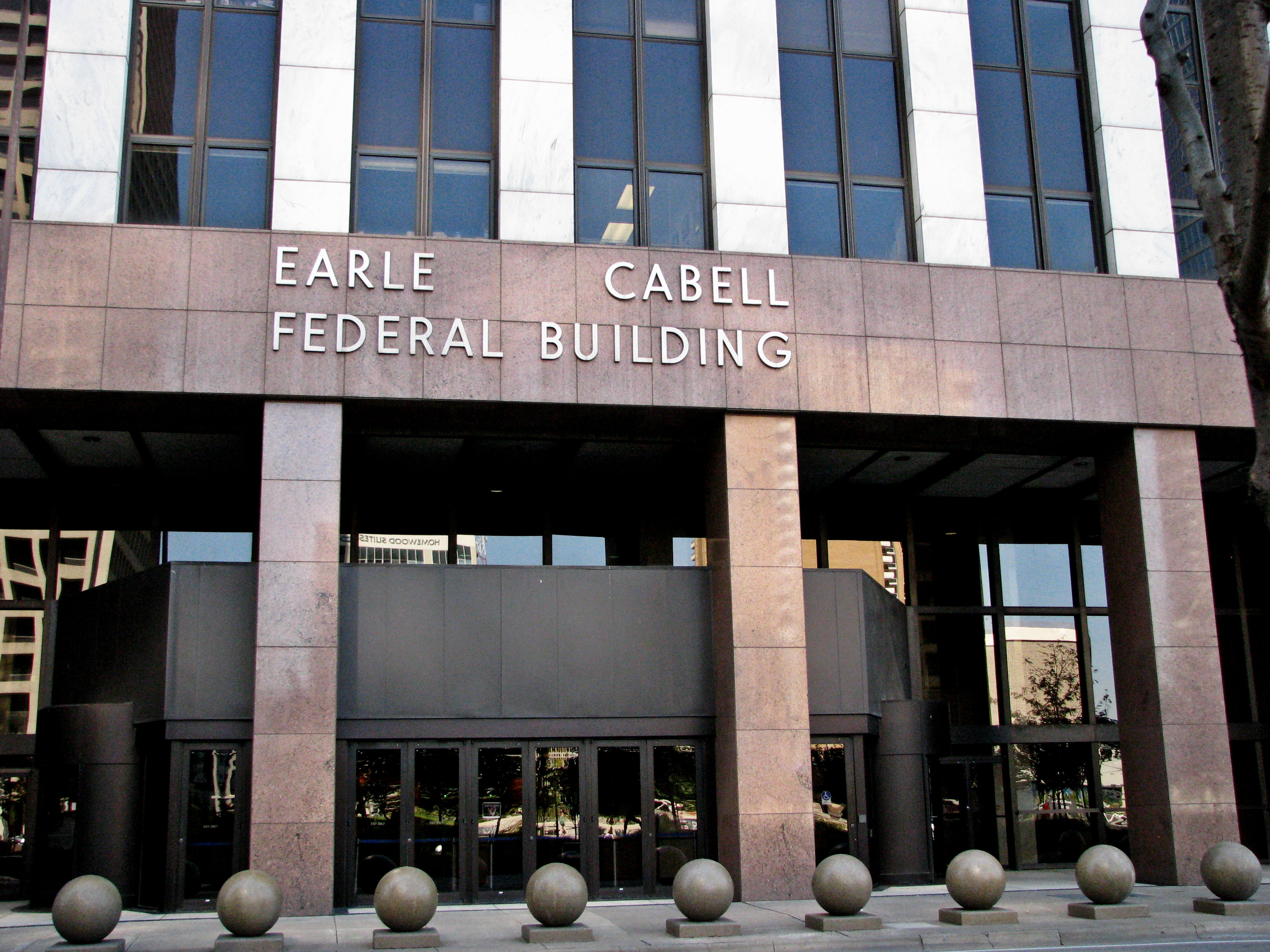Court Invalidates SEC’s Dealer Rule: What It Means for DeFi, Crypto, and Digital Asset Markets
R Tamara de Silva
Summary: In a significant decision, the U.S. District Court for the Northern District of Texas invalidated the SEC’s Dealer Rule, striking down the agency’s expanded definition of 'dealers' under the Securities Exchange Act. The Court found that the rule exceeded the SEC’s statutory authority and failed to account for the distinction between dealers and traders. This ruling has far-reaching implications for DeFi platforms, crypto firms, and digital asset markets, particularly as the legal boundaries of regulatory oversight come under scrutiny.
The United States District Court for the Northern District of Texas on November 21, 2024 handed down a significant ruling in Crypto Freedom Alliance of Texas, et al. v. SEC. This case arose from a challenge to the Securities and Exchange Commission’s (SEC) newly adopted “Dealer Rule.” The Rule attempted to redefine “dealer” under the Securities Exchange Act (Exchange Act) in a way that would sweep in participants in decentralized finance (DeFi) and other digital asset markets. Plaintiffs, including the Crypto Freedom Alliance of Texas and the Blockchain Association, argued that the Rule exceeded the SEC’s authority and violated the Administrative Procedure Act (APA).
The Court agreed with the plaintiffs, vacating the Dealer Rule in its entirety. This decision underscores the judicial system's role in ensuring that regulatory agencies do not exceed their statutory authority. It also provides insight into the boundaries of SEC oversight in the digital asset space, especially as innovation continues to challenge traditional regulatory frameworks.
This decision resonates with broader challenges to the SEC’s authority over digital assets, such as the ongoing lawsuits and debates referenced in two related cases I’ve discussed in prior blog posts: 18 States Challenge SEC: Crypto Regulation, Legal Battles, and Leadership Change and Bitnomial Exchange Sues SEC: Key Legal Battle Over Crypto Futures. These cases provide important context for understanding the Crypto Freedom Alliance decision.
Background of the Case
The plaintiffs, two nonprofit organizations, brought the lawsuit to challenge the SEC’s Dealer Rule. The Crypto Freedom Alliance of Texas advocates for policies that foster innovation and economic growth in digital assets, while the Blockchain Association promotes a pro-innovation policy environment for the blockchain ecosystem. Both groups opposed the Dealer Rule for its sweeping implications, particularly in the context of DeFi protocols.
The Dealer Rule was introduced in February 2024 and sought to expand the definition of “dealer” under the Exchange Act. It applied this new definition to entities engaged in activities that provide liquidity to markets, including those operating on DeFi protocols. These protocols rely on automated smart contracts and peer-to-peer mechanisms, with liquidity often crowdsourced from participants using open-source software. The Rule treated these liquidity providers as dealers, subjecting them to regulatory requirements typically reserved for intermediaries.
Plaintiffs contended that this redefinition overstepped the SEC’s statutory authority, obliterating the long-standing distinction between “dealers” and “traders” under the Exchange Act. They argued that the Rule was not only beyond the SEC’s power but also arbitrary, capricious, and procedurally deficient under the APA.
This case, much like the Bitnomial Exchange lawsuit discussed in my October blog post, highlights the tension between innovation in the digital asset space and the SEC’s attempts to
regulate these markets. In the Bitnomial case, the exchange argued that the SEC’s classification of certain crypto futures contracts as securities exceeded its authority, a theme that aligns closely with the plaintiffs’ arguments in the Crypto Freedom Alliance case.
Court’s Detailed Analysis
The Court’s reasoning in striking down the Dealer Rule was thorough and multifaceted. It addressed the SEC’s statutory authority, the historical interpretation of “dealer,” and the Rule’s practical implications for market participants. The Court also evaluated the qualitative tests introduced by the SEC and the dissenting views of one of its Commissioners.
Statutory Framework of the Exchange Act
At the heart of the case was the Exchange Act’s definition of “dealer.” Under the Act, a dealer is someone engaged in the business of buying and selling securities for their own account as part of a regular business. In contrast, a trader buys and sells securities for their own account, but not as part of a regular business. This distinction has long been recognized as central to the regulatory framework.
The Court found that the SEC’s Dealer Rule blurred this distinction. By defining dealers to include those providing market liquidity, regardless of whether they performed intermediary functions, the Rule disregarded the Exchange Act’s clear language. Dealers have traditionally been understood to offer services such as quoting prices, advising clients, and managing customer accounts. Traders, on the other hand, act solely for their own investment objectives without offering services to others. The Court determined that the SEC’s redefinition improperly conflated these roles.
This statutory overreach parallels the arguments made by 18 state attorneys general in their lawsuit against the SEC, which I discussed in my November blog post. Those states challenged the SEC’s regulatory authority, claiming it infringed on state-led frameworks for digital asset oversight. Similarly, in Crypto Freedom Alliance, the Court highlighted the SEC’s disregard for statutory boundaries, emphasizing that regulatory authority must remain within legislatively defined limits.
How the Exchange Act Defines Dealers and Traders
The Court leaned heavily on historical interpretations of the terms dealer and trader. It cited a 1933 treatise by Charles H. Meyer and the 1936 Supreme Court case Schafer v. Helvering. These sources described dealers as market intermediaries who buy securities for their own account and resell them to customers for a profit. Traders, in contrast, are individuals who trade for their own investment purposes without engaging in customer-facing activities.
The Dealer Rule, however, departed from this historical understanding. It applied the dealer designation to entities based solely on their trading activity and its effect on market liquidity. This expansive interpretation was inconsistent with nearly a century of established precedent.
Flaws in the Dealer Rule’s Qualitative Tests
The SEC’s Dealer Rule introduced two qualitative tests to determine dealer status. The first test focused on whether a person regularly expressed trading interest at or near the best available prices on both sides of the market.
The second test looked at whether a person earned revenue primarily from capturing bid-ask spreads or trading venue incentives. The Court found both tests problematic, as they failed to adequately distinguish between dealers and traders. By defining dealer activity based on liquidity provision alone, the Rule effectively captured any active market participant, regardless of whether they engaged in traditional dealer services like quoting prices, soliciting clients, or managing customer funds.
This failure to differentiate between dealers and traders contradicted the Exchange Act’s statutory language and historical interpretations. The Court noted that the SEC’s approach would impose unnecessary regulatory burdens on entities that were never intended to fall under dealer regulations.
Issues with the Scope and Application of the Dealer Rule
The Court highlighted inconsistencies in the SEC’s application of the Dealer Rule. For example, certain institutions, such as the Federal Reserve, were excluded from the Rule’s provisions. This selective application suggested a lack of coherence in the Rule’s scope and further supported the Court’s conclusion that the Rule was overly broad.
The SEC’s unwillingness to consider the unique characteristics of decentralized finance (DeFi) protocols was arguably problematic for obvious reasons. Unlike traditional financial intermediaries, DeFi platforms operate through automated smart contracts and peer-to-peer mechanisms. Liquidity is often crowdsourced, and transactions are executed transparently through open-source code. The Court found that the SEC’s application of the dealer designation ignored these distinctions.
But it is not that simple. The counter argument to this is that at some point, some group of people established the platform and profit from it. While it is true that DeFi platforms execute transactions through transparent, open-source smart contracts, the broader ecosystem involves centralized touchpoints, such as developers, marketers, or even investors, who could benefit financially. This complicates the narrative of pure decentralization.

What This Ruling Means for DeFi and Digital Asset Markets
The Court’s ruling has significant implications for the digital asset industry, particularly for participants in DeFi. By vacating the Dealer Rule, the Court has prevented the imposition of compliance burdens on entities that operate outside the scope of traditional dealer activities. This decision is especially important for the continued development of decentralized financial systems, which rely on innovative, peer-to-peer trading models.
The broader implications of the Court’s decision are evident when viewed alongside other recent challenges to SEC authority. In the Bitnomial Exchange case, discussed in here in Bitnomial Exchange Sues SEC: Key Legal Battle Over Crypto Futures, the exchange argued that the SEC’s classification of certain crypto futures contracts as securities was an overreach. Similarly, the 18-state coalition’s lawsuit against the SEC, as outlined in 18 States Challenge SEC: Crypto Regulation, Legal Battles, and Leadership Change, challenged the agency’s authority in regulating digital assets, arguing for state-led frameworks instead.
These cases, along with the Crypto Freedom Alliance decision, highlight a growing judicial resistance to regulatory overreach in the crypto and digital asset sectors. The Court’s ruling ensures that innovation in DeFi and other digital asset markets is not stifled by improperly broad regulatory definitions.
Commissioner Peirce’s Dissent
The Court also drew attention to a dissenting opinion from SEC Commissioner Hester Peirce, who criticized the Rule’s conflation of liquidity provision with dealer activity. Commissioner Peirce argued that providing liquidity alone does not equate to dealing, as traditionally defined under the Exchange Act. She further noted that the SEC’s departure from established regulatory principles could undermine market confidence and innovation.
The Court found Commissioner Peirce’s dissent persuasive, reinforcing its conclusion that the Rule exceeded the SEC’s statutory authority. The dissent underscored the importance of maintaining clear regulatory distinctions to prevent unnecessary compliance burdens on market participants.
Conclusion
The court’s decision to invalidate the SEC’s Dealer Rule preserves the distinction between dealers and traders under the Exchange Act, preventing the imposition of compliance burdens on entities outside the scope of traditional dealer activities. This is particularly meaningful for DeFi platforms, which rely on peer-to-peer trading and automated liquidity mechanisms.
This decision aligns with broader legal challenges to the SEC’s regulatory reach, as seen in the lawsuits brought by Bitnomial Exchange and the coalition of 18 states. These cases collectively signal a growing pushback against regulatory interpretations that adversely affect digital assets.
The broader implications of Crypto Freedom Alliance of Texas, et al. v. SEC cannot be overstated. It highlights the judiciary’s role in balancing regulatory oversight with the need to foster innovation and growth in emerging industries. It reinforces the principle that regulatory agencies must operate within their statutory boundaries, ensuring that innovation is not unduly burdened by overreach. By invalidating the Dealer Rule, the Court has set a precedent that may help shape the future of digital asset regulation in the United States.
If you’re navigating complex securities regulations or need legal guidance on digital assets, contact the De Silva Law Offices for experienced representation.


